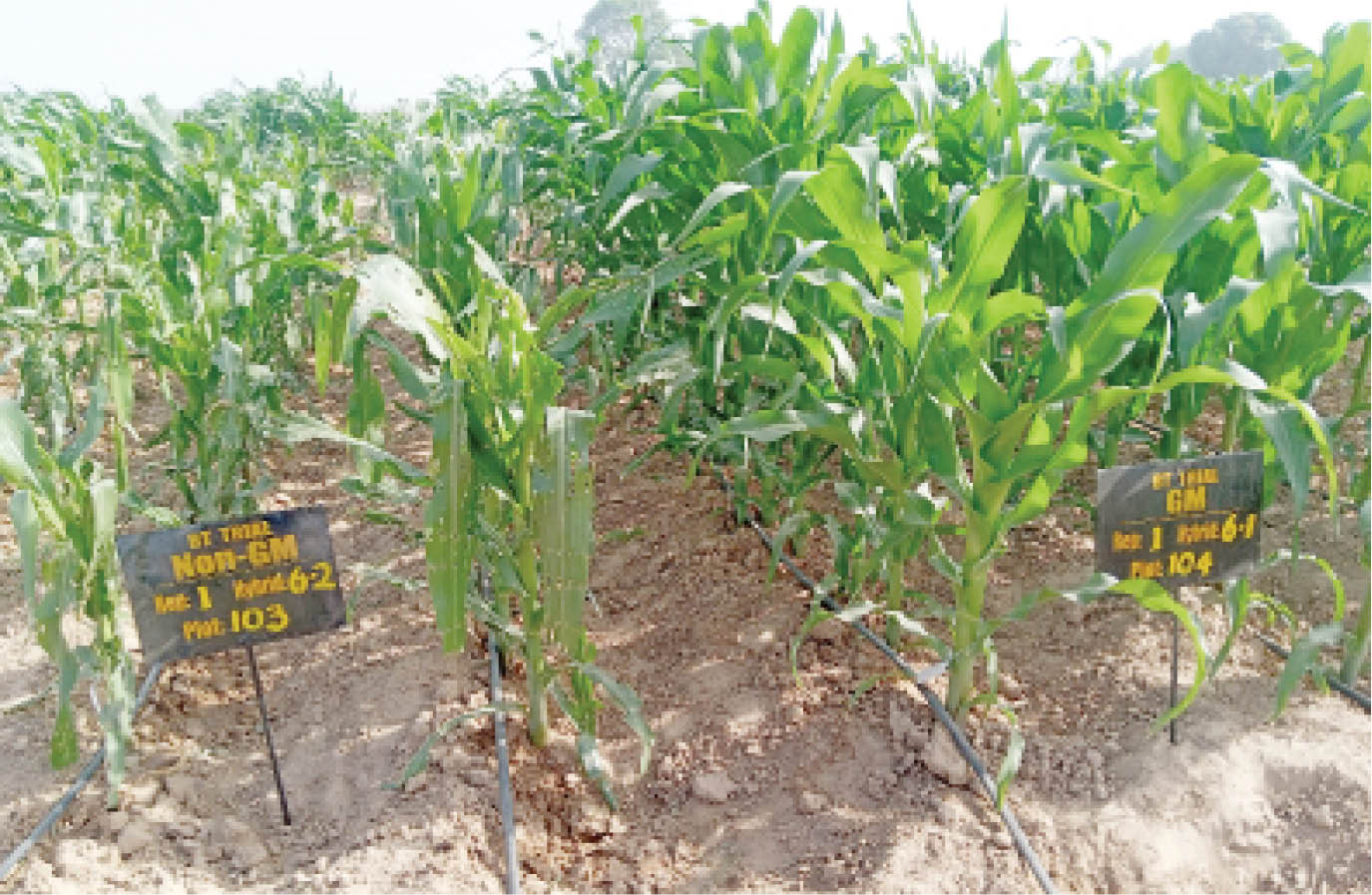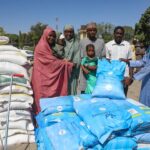In 2019, Nigeria joined six other African countries – Kenya, Mozambique, Tanzania, Uganda, South Africa and Ethiopia – to enter into a Tela maize project.
The Tela maize project is a public-private partnership to develop and commercialise the transgenic insect-protected and drought-tolerant maize varieties to boost the farmers’ productivity.
Tela maize is double-dose (moderate drought and insect resistance) maize varieties designed to help farmers have better yields.
At the Institute of Agricultural Research (IAR), Ahmadu Bello University (ABU), Zaria, a team of scientists are working on the maize varieties to ensure that by 2022, farmers across the country would have access to it after it has gone through all the necessary regulations.
Professor Mohammed Faguji, a seed breeder and the executive director of the IAR, said global warming brought two adverse conditions (drought and flooding), in addition to pests that made farming difficult for many smallholder farmers. The Tela maize, he said, was to solve those problems.
Daily Trust on Sunday visited the field where the varieties are undergoing confined field trials to evaluate the efficacy and efficiency of the drought and pest-resistant attributes before seeking the approval of the necessary authorities for environmental release and subsequently, commercialisation, with 2022 as the target year.
Professor Rabiu Adamu is the principal investigator (lead researcher) of the genetically modified Tela maize project. He told Daily Trust on Sunday at the trial fields in Zaria that the research had two strong aims: to produce transgenic hybrid varieties of maize for the first time in Nigeria, that are resistant to most maize pests, particularly the major pests of maize, stem borers and the fall army worms, and to produce maize hybrid that are also tolerant to drought.
“These hybrids are genetically modified, using biotechnology to make them resistant. So they have a gene from soil-dwelling bacterial that is inserted into the maize gene that compasses resistance to insect pests, especially those that damage maize, that is the fall army worm and the complex of stem borers, which are three: the pink stem borer and the other species the maize stalk-borer -Busseolafusca and Sesamiacalamistis.
These are the two key stem borers of maize in this part of the country. These hybrids we are testing are genetically modified to resist damage by insect pests, especially stem borers and fall army worms as you have seen in the field,” he explained.
He said the current crop in the field was the third Confined Field Trials (CFT).
‘’We are hoping to environmentally realise these hybrid in Nigerian fields in other research institutes and some out stations to test them to confirm and validate the implicating of the gene, not only here. Thereafter, we will write a memo to the regulator to allow us conduct more trails outside the conferment in other farmers’ fields and other research institutes,’’ he added.
Speaking on when the farmers are likely to get the seeds, he said that after one year when the results are ready, they would submit the dossier to the National Biosafety Management Agency (NBMA) for permission to take it to the farmers to do national multiplication trails.
Out of the 16 entries, the best performing hybrids selected by the famers will be evaluated and reports submitted to the National Varietal Release Committee in Ibadan. Once they accept that the varieties have met the minimum requirement for them to be released as hybrid, they can be released to farmers,’’ he said.
The scientists are tentatively looking at December 2022 for its release so that in about three years, farmers everywhere will have access to the seed.
Dr Muhyideen Oyekunle, the lead, Trials and Pipeline Testing, who took our reporter around, explained the biotic and abiotic attributes of the ongoing progress of the Tela maize research planted in three plots to evaluate the efficacy of the resistance to drought, fall army worm and stem borers.
In the field, there are very clear differences, the non-GM maize, which infected pests almost completely ravaged by the fall army worm, stem borers, whereas the GM varieties were completely untouched even though the two varieties (Tela Maize and the traditional seeds that do not have biotech protection are planted in close proximity) side-by-side.
The ongoing field results as seen by our reporter shows great prospect although the yield remains to be seen and evaluated. Until then, there is solution to pests and drought problems on sight.
Some of the varieties are yellow but most of them are white, however, in the trials, more than 90 percent are white maize because it is preferred by industry players.
But the scientists’ major challenges are COVID-19 pandemic and the issue of misperception and misinformation about the technology.
“People who don’t know how the technology works like to use the social media and other non-scientific avenues to confuse and mislead the public and other scientists,” the lead researcher, Professor Adamu said.
The Tela maize scheme is a collaboration between the African Agricultural Technology Foundation (AATF) and the IAR under the Tela maize project implemented in seven African countries. It builds on the success on breeding work under the Water Efficient Maize for Africa (WEMA) project designed “to develop drought-tolerant and insect-protected maize varieties.’’

 Join Daily Trust WhatsApp Community For Quick Access To News and Happenings Around You.
Join Daily Trust WhatsApp Community For Quick Access To News and Happenings Around You.


